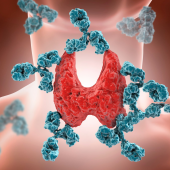Detoxification programs help balance hormones by ridding the body of toxic agents that can interfere with normal processes of synthesizing hormones naturally and in balance with our body's natural rhythms. When we reduce the toxic burden on our body, our systems can then refocus vital energy on naturally balancing hormones and supporting health and wellness. However, much is still to be learned about hormone balancing. In order to help us better understand this complex area, we are joined by Dr Yasaman Tasalloti.
Dr Tasalloti received a doctorate in naturopathic medicine from the Southwest College of Naturopathic Medicine in Tempe, Arizona, where she acquired extensive medical training in both conventional and traditional medicine. Dr Tasalloti has a special focus on hormone health.
Key Take-Aways
- Hormone Imbalance and Toxins We are seeing more hormonal imbalances and disruptions with attendant negative health outcomes. These imbalances are occurring because our environment has become increasingly contaminated. Our water supplies can be polluted. We eat an abundance of processed foods, often as fast foods containing animal products that are pumped with hormones. Also, many people are on medications and different medications have different side effects as they are metabolized in the liver. As such, our body’s hormone levels are often imbalanced.
- Key Drivers of Hormone Imbalance Gut dysfunction occurs as a result of changes in the microbiome due to environmental toxins, resulting in hormonal shifts. Chronic stress is another cause of hormone imbalance. Also, obesity is a huge problem in our society and can itself cause different hormonal shifts. Electromagnetic frequencies may also result in hormone imbalance.
- Estrogen Imbalance We are living in an environment where estrogen levels are becoming dominant, throwing other hormones out of balance. Estrogen imbalance is associated with symptoms including acne, infertility, PMS, endometriosis, and PCOS in women, as well as lower testosterone levels, erectile dysfunction, and mood imbalances in men. Weight gain results in adipose tissue secreting more estrogen, which then leads to greater adipose tissue mass. High estrogen levels can cause decreases in thyroid and cortisol levels, so these hormones have an inverse relationship.
- Thyroid Hormone Issues Typically, thyroid imbalances involve a slowing down of metabolism, with symptoms including constipation, fatigue, brittle hair and nails, a slower heart rate, and weight gain. Liver health plays an important part in thyroid metabolism, which can then disrupt estrogen metabolism. Gut health and a proper diet are also critical for thyroid hormone health.
- Cortisol Hormone Issues Abnormally elevated cortisol can impair the liver's ability to metabolize estrogen, as well as potentially cause low progesterone levels. Also, cortisol can disrupt digestive function and can result in impaired gut health. Cortisol in high levels can also cause thyroid imbalances. Also, adrenal fatigue caused by constant stress can be a product of cortisol imbalance.
- Assessment of Hormone Imbalance The Dutch test is preferred as it provides a range of measurements including estrogen, progesterone, testosterone, and DHT. Together with a cortisol panel test, you have a comprehensive assessment. It is important to obtain a baseline measure, then look at the impact of various interventions on hormone levels.
- Treatment Approaches for Hormone Imbalance Diet and lifestyle are critical. It is vital to educate patients on what is causing their toxic burden. Addressing diet by eliminating gluten and dairy as well as avoiding sugar that causes inflammation and generates issues with other hormones is important. Lifestyle factors, including working out, adequate sleep, and reducing stress also need to be optimized.
- Importance of Genetic Testing Running a genomic panel is useful in order to identify those targeted supplements that are helpful. Patients possess genetic variations in pathways involving magnesium, vitamin E, as well as other minerals and nutrients which alter hormone metabolism. For anyone interested in learning more about those genetic variants, the work of Dr Ben Lynch is highly recommended.
Key Quote
“So initially you're going to have that high cortisol pattern, but overtime if you don't manage that stress pattern very well then you're going to have low cortisol output. And that's going to ultimately cause a deficiency in your other hormones as well.”
Dr Yasaman Tasolloti
==
The opinions expressed in this Nutramedica program are those of the guests and contributors. They do not necessarily reflect the opinions of Nutritional Fundamentals For Health Inc.
This video is intended for licensed or registered health professionals and students of health professions only. These statements have not been evaluated by the Food and Drug Administration. Information contained in these programs are not intended to diagnose, treat, cure or prevent any disease.



